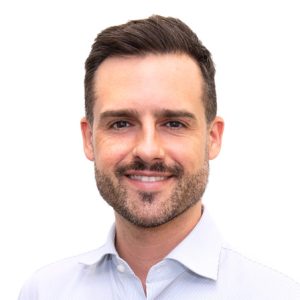What challenge(s) do our clients face?
The third sector can be a complex reality with many different entities, objectives, limited resources and tighter budgets.
The third sector is an umbrella term for an industry comprised of diverse public and private sector players. Over the past 30 years, we have worked with NGOs and public bodies, such as hospitals and educational institutions, to tackle a range of technical needs in different geographies.
While the specific needs of each client depend to a great degree on their respective context and role in society, we have seen some common challenges across the third sector:
- Medium-term focus: There are often challenges in implementing complex transformational projects – driving long-term thinking, maintaining buy-in across key stakeholders and guaranteeing the required resources.
- Limited resources and need for consensus: Typically, all third sector entities work on a constrained budget and with limited resources that must be divided among different causes and teams based on urgency and buy-in. This demands extensive decision-making processes resulting from the need to build consensus across a large number of stakeholders over time and secure support, even before a project can go ahead.
- Friction or limited experience working with consultancies: In some of the countries Integration has worked, the use of an external service provider with a market-oriented mindset can seem at odds with particular principles or a public image. Even though this solution could lead to savings in the long run and relieve pressure on internal human resources, this may pose a difficult entry angle to begin building collaboratively.
How do we help?
Our technical specialists and their understanding of how to navigate the third sector enables Integration to build consensus, ensure traction and deliver results.
Beyond the complexities of the environment, the technical needs and individual contexts vary widely throughout the third sector. Our established multi-disciplinary expertise and understanding of how to navigate different political and geographical realities allows Integration to support teams drive long-term change. We offer our clients the following:
Technical depth and specialized teams: Our approach of working with tried-and-tested methodologies allows us to effectively combine the necessary technical ingredients that deliver the needed end-to-end solutions. We evaluate and understand the specificities and needs of the given situation, leveraging our subject-matter experts and best practices from the industry to develop a robust and tailor-made approach.
An objective opinion that understands your reality: As an external partner, we are well positioned to provide unbiased recommendations based on data and real-world evidence. Once a technical recommendation has been developed, we can adjust it according to the political environment at hand. This knowledge allows our clients to define the best path for their immediate context and longer-term objectives.
Collaborative building to generate buy-in: We engage the team at all levels to generate buy-in from the start, ensuring that all knowledge is being captured and that expectations are levelled. This lets us build effective solutions based on consensus and backing from those who will lead the day-to-day business.
Guaranteed long-term viability: Beyond simply delivering a technical recommendation, Integration work with teams in charge of implementation. We create a clear plan and map all activities, timelines, roles and responsibilities to facilitate execution and monitoring to the end. We ensure everything is well documented to serve as a baseline for the future and to ensure handovers are seamless in the case of team changes.
Commonly applied services
We help our clients with a broad array of technical needs, the most common being:
Clients
Integration’s track record in the third sector crosses geographies and clients is diverse. Some of our recent clients include:
SUCCESS STORIES
CHALLENGE
Various state secretaries of education and a number of NGOs supporting public education in Brazil asked Integration for support in expanding the full-time education (FTE) model in several states in Brazil. Compared to standard part-time education, FTE is significantly more expensive, requiring additional infrastructure to increase not only capacity in the network but also provide facilities such as libraries and cafeterias. The challenge was how to design a model that matched the reality of each state to ensure adoption and to optimize the cost of expansion in line with local investment restrictions.
APPROACH
Integration worked with the NGOs and government stakeholders to balance the equation by examining two key aspects: first, understanding the reality of each state – the current model in place, education KPIs and the local investment budget – and, second, identifying the cost of converting current PTE schools to the FTE model, using a tailor-made simulator considering local restrictions and directives. By combining the objectives and needs of each state with the cost of implementation in the specific context, Integration worked with the client’s tine to put together different expansion scenarios to achieve the target within budget. We also created a full implementation plan for the chosen option to ensure feasibility, tracking and targets for execution.
RESULT
Together with stakeholders from both the government and NGOs, we defined a clear scenario to meet expansion targets in a way that respected local needs, priorities and budget restrictions. We detailed all of the necessary actions required to reduce cost and capture earnings, e.g. modelling optimal class organization to minimize the number of teachers, and ensured the responsible government parties were well-prepared to implement the changes. We generated buy-in from key individuals to ensure the longevity of the project and supported the local team in understanding and driving the implementation plan over the coming years.
CHALLENGE
In one state in Brazil, the time required to set-up a new business had been steadily increasing over time, reaching around 500 days for organizations requiring specific licenses related to health surveillance, environmental regulations and fire safety.
In comparison, the same processes in other Brazilian states took less than 30 days. Facing this disadvantage, the state was losing businesses to neighboring states and generating dissatisfaction among local entrepreneurs. Integration was asked to support the state government in reducing this process to 30 days, with a broader objective of turning into a reference for Brazil as a whole.
APPROACH
We began by mapping the end-to-end process, identifying the stages which required a higher time investment and bottlenecks – such as the Fire Department, which demanded 420 days – to design a more effective overall process.
We simultaneously created a mechanism through which businesses could be segmented considering the type of work and risks involved. This segmentation could be used to identify the elements of the set-up process that were truly applicable to them. By reducing the number of businesses requiring the full set of approvals – law firms, for example, requiring fewer certifications than factories – we reduced pressure on certain steps and provided a faster route for lower-risk organizations.
RESULT
We defined the new processes based on future company risk level, creating separate paths for low and high-risk businesses, and prepared scenarios according to adjustments in legislation. The average opening time improved from 480 days to less than 30 days for low-risk organizations by leveraging automation and 60 days for high-risk businesses.







